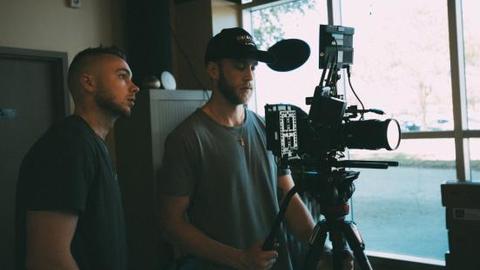Michelle Wright writes for Suffolk Norfolk Life
14 October 2020 | By Michelle Wright
The Charity Challenge

East Anglia’s charities have been hit hard by the pandemic. Many charities have had to close their retail outlets, cancel fundraising events, and have struggled to deliver vital support for the community under strict lockdown conditions. However, there are some charity trailblazers who have shown imagination and gumption to keep their coffers filled and their beneficiaries cared for. We can all learn from the charities that are adapting their services online, reaching out to new donors and drawing in Government support where it’s available. But where does a charity start? Michelle Wright, CEO of Cause4, a Norfolk based B Corporation that helps charities with strategy and insight, spells out the challenge.
We simply don’t know how the future will play out. Will a predicted increase in unemployment affect disposable income and impact donations? Will more be expected of charities when public services are stretched to the max? Will we experience repeated mini-lock downs for years to come? We can’t sit around and wait for better times – we need to adjust.
Adapting to virtual
It is no surprise that charities have moved to digital delivery, with organisations creating online programmes to replace face to face activity. The National Youth Jazz Orchestra and National Youth Orchestra are just two of examples of arts organisations that have created online platforms to engage young people in music education and participation. Other charities such as Survivors in Transition have moved online and provided virtual therapy services for beneficiaries, whilst Closer to home, Falcon Meadow Community Trust, a Norfolk/Suffolk environmental charity, has moved its tongue-in-cheek plastic duck race online, creating a campaign complete with videos and a live streaming of the sponsored race.
But not every charity is able to make the switch. Too many, without the inhouse skills to work successfully online, felt they had little choice but to shut up shop. According to the Charity Digital Skills Report, 27% of charities cancelled their services this year because of a lack of digital-know-how. It’s a pity in the short-term and also doesn’t bode well for the future. Without online-enabled delivery how much of the innovative fundraising activity that’s taken place will last?
There are a variety of support programmes available for charity staff to improve their digital skills and my advice is seek them out sooner rather than later. Waiting for things to return to how they used to be isn’t a strategy that’s going to be sustainable for the charitable sector.
Adapt and keep going
I’ve been inspired by the charities that have adopted new ways to boost their presence and fundraising during Covid-19. With money so scarce, it’s vital that charities seek to reach out to their communities and engage. Small scale activities can still make all the difference. In East Anglia specifically, Blue Cross Suffolk, an animal rehoming charity near Ipswich that is currently looking after 33 animals, set up virtual adopting and rehoming services. Through videos of how to care for the animals up for adoption, they’ve showcased their own expertise and provided useful insight, all the time encouraging potential adoptors to meet and spend time with the animals.
Rowan Humberstone, a charity and arts centre dedicated to helping people with learning disabilities is providing activity packs, online classes and regular phone contact to its students, continuing delivery throughout lockdown.
Drawing Life, a charity that supports people with dementia, responded to the lockdown that has had such an impact on care home residents, and put additional stress on people caring for family members at home, by distributing 500 copies of a sketch book that can be used in place of attending a life drawing class.
A little more conversation
Showing appreciation for volunteers and supporters on social media is a great way to boost publicity and ensure effective stewardship, as well as to keep people engaged. Creswell Crags used social media to publicly thank the donors of its crowdfunding campaign, whilst the Trussell Trust used Twitter to show its gratitude to supporters and highlight the impact of local foodbank donations.
Although the majority of theatres, museums and other public-facing venues have closed, a number stayed in the public eye by continuing the conversation with their supporters and donors. A great example of this is Norwich Theatre Royal and their launch of INTERLUDE ,a programme of outdoor socially distanced performances. Other charities used social media to boost campaigns and raise additional funds. For example, the brain injury charity, Headway, started a campaign asking people working remotely to donate the cost of their usual work commute during lock down. The hashtag #DonateYourCommute is now widely in use.
Share what you know
East Anglia based Dance Company Unit found their entrepreneurial spirit during lockdown, offering online talks, classes and workshops, and charging a small fee to generate earned income. But it’s not just the talented experts that got in on the act. Across the pond, the Humane Society Wisconsin Shelter offered original sketches of people’s pets for a donation to the charity and were inundated with requests. Volunteers and staff created the artwork from photos posted by pet owners on Twitter, with a suggested donation of $15 (£11.70). The artwork produced was not all good, but it was very engaging to connect with the people behind the charity. In one day, the shelter received 700 requests and raised $12,000 (£9131.58).
Get inspired
We are already seeing so many way people, communities and organisations are getting busy and making changes. Many commercial businesses and suppliers are also offering help. Let’s learn from each other and move ahead - engagement and adaptation is key.
Read the original article on page 44 of Suffolk Norfolk Life here.



